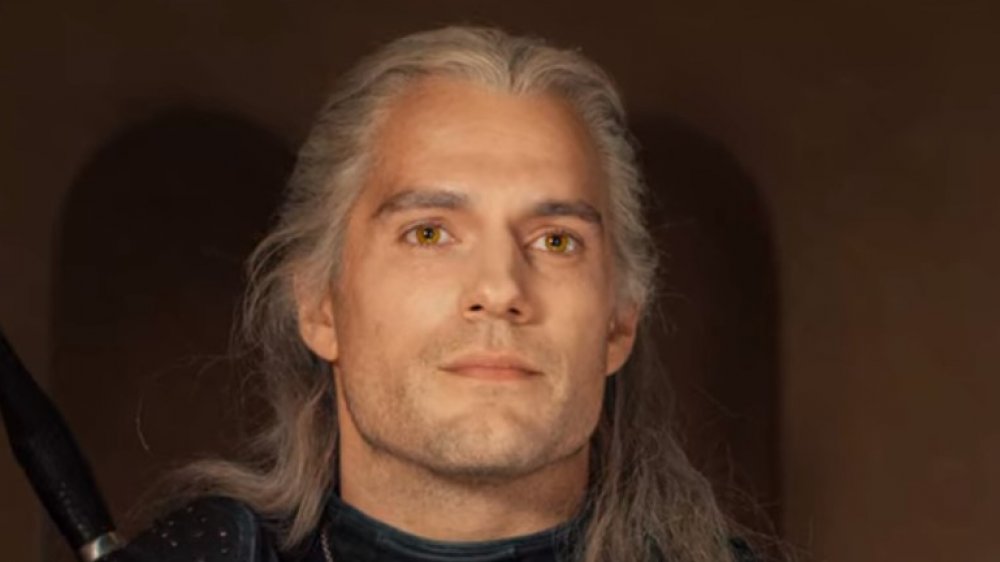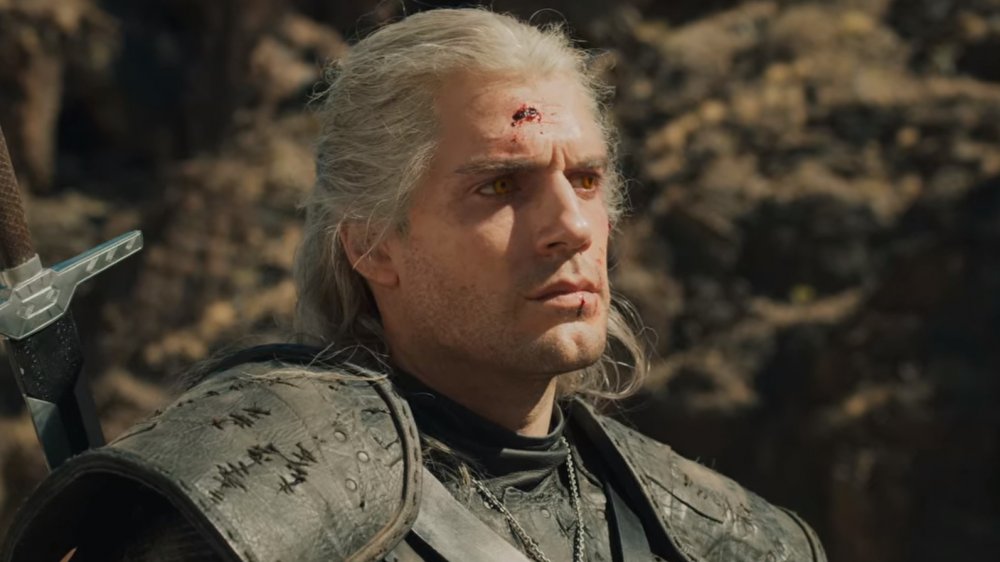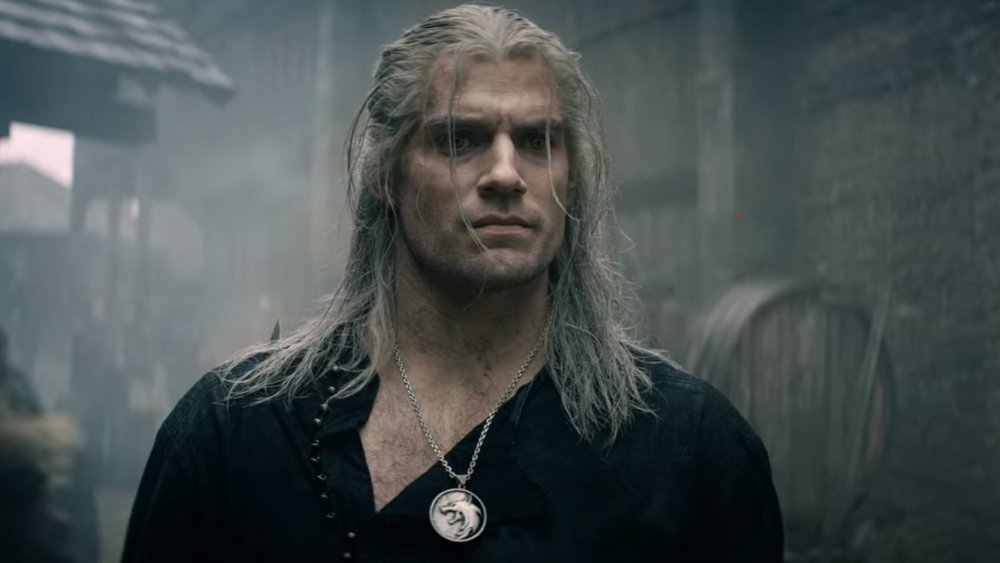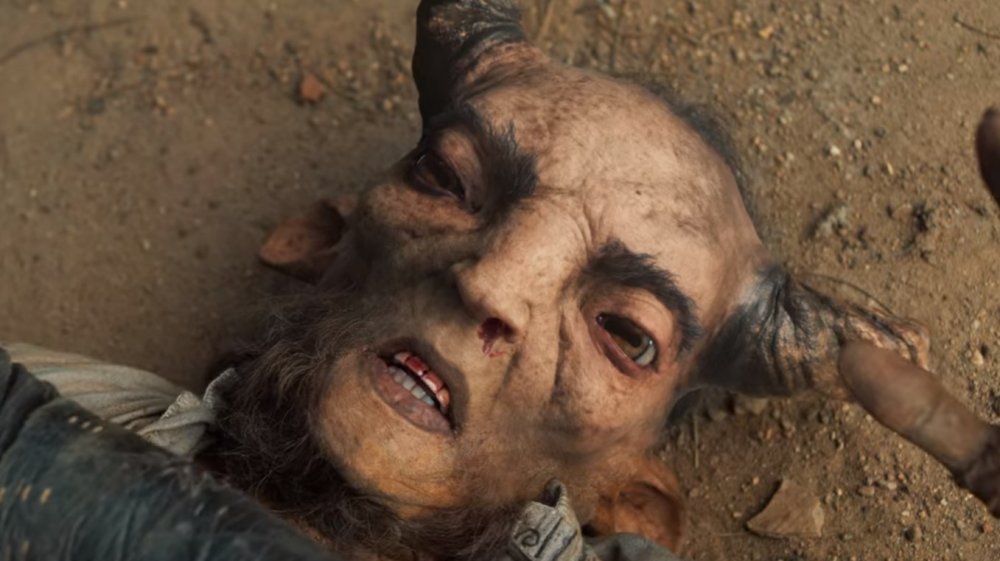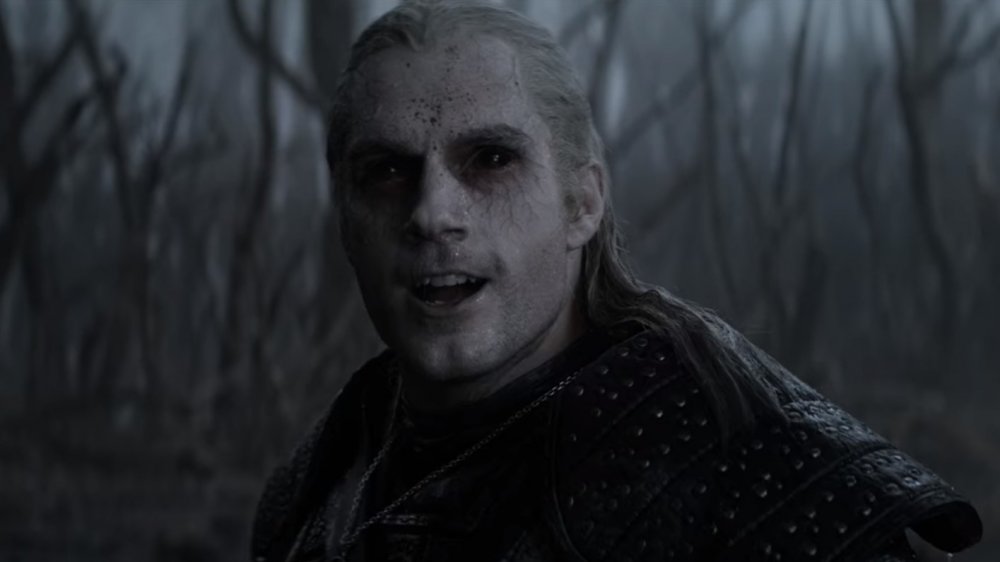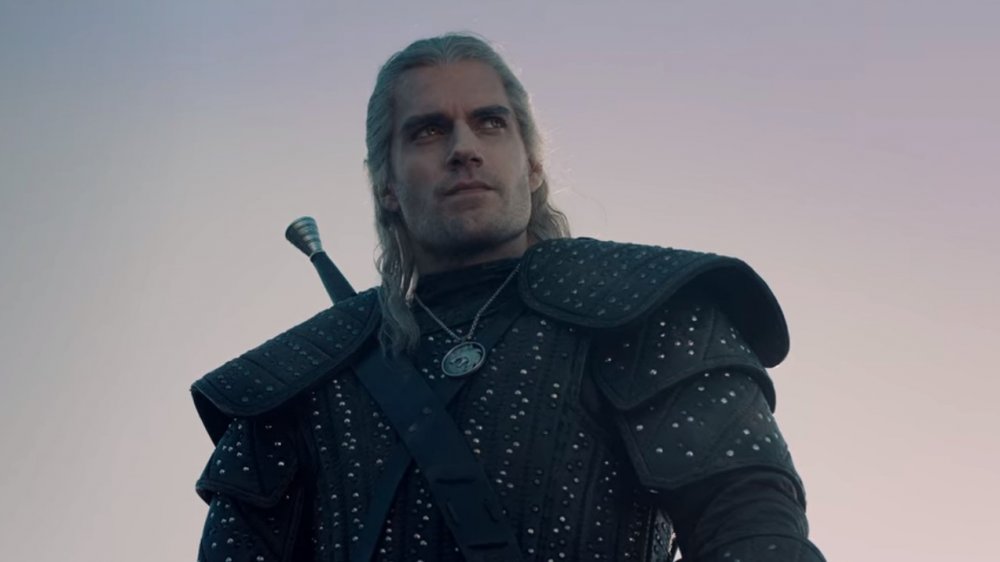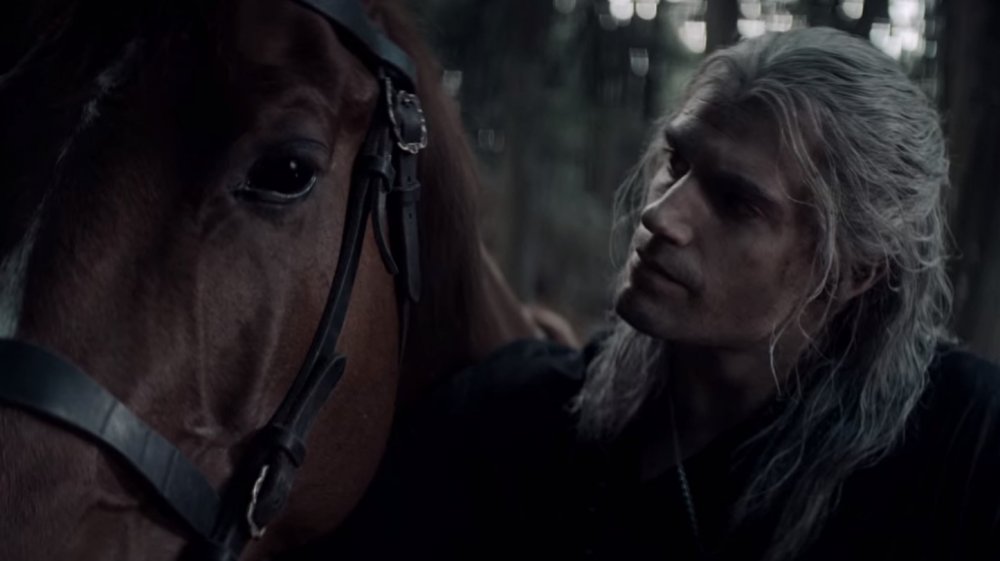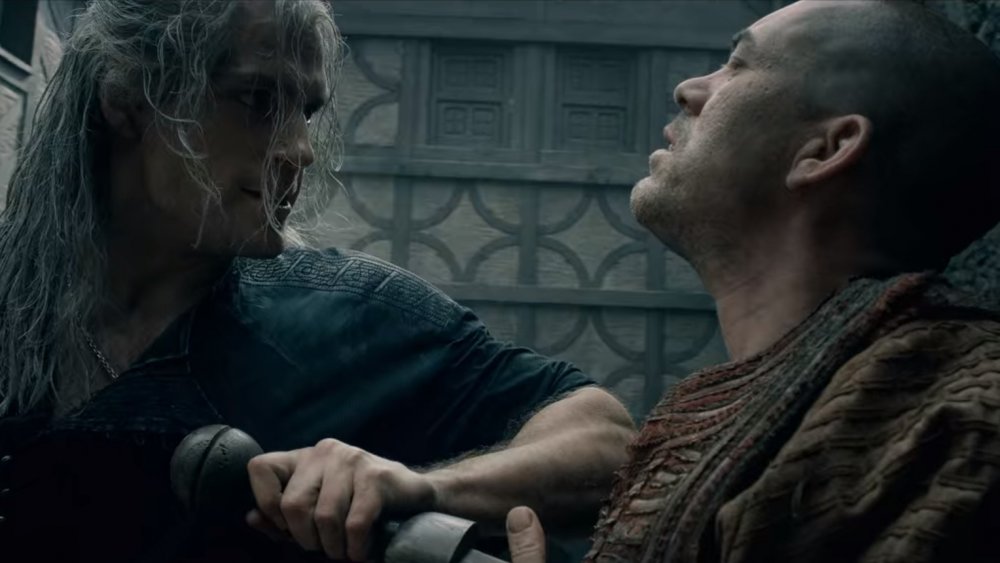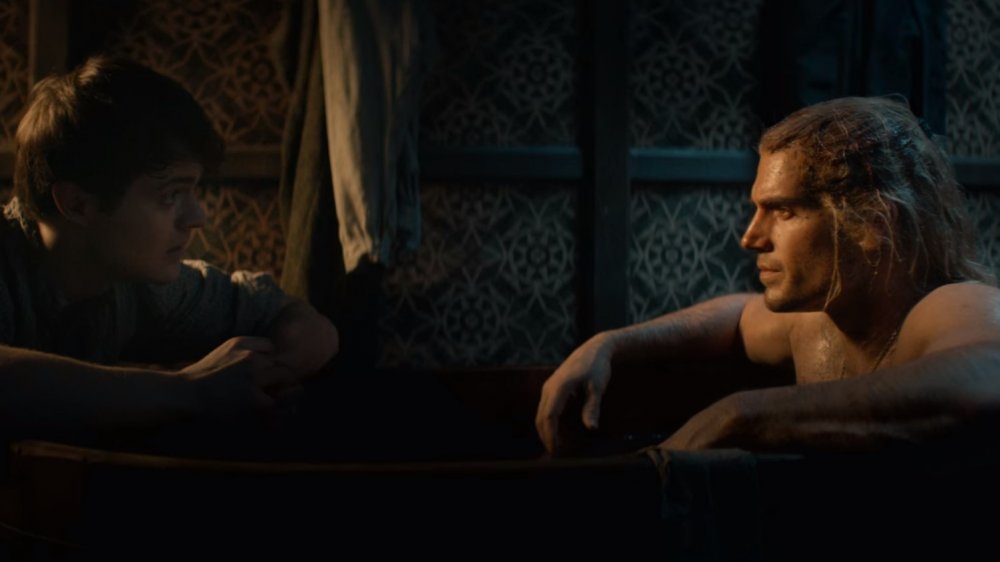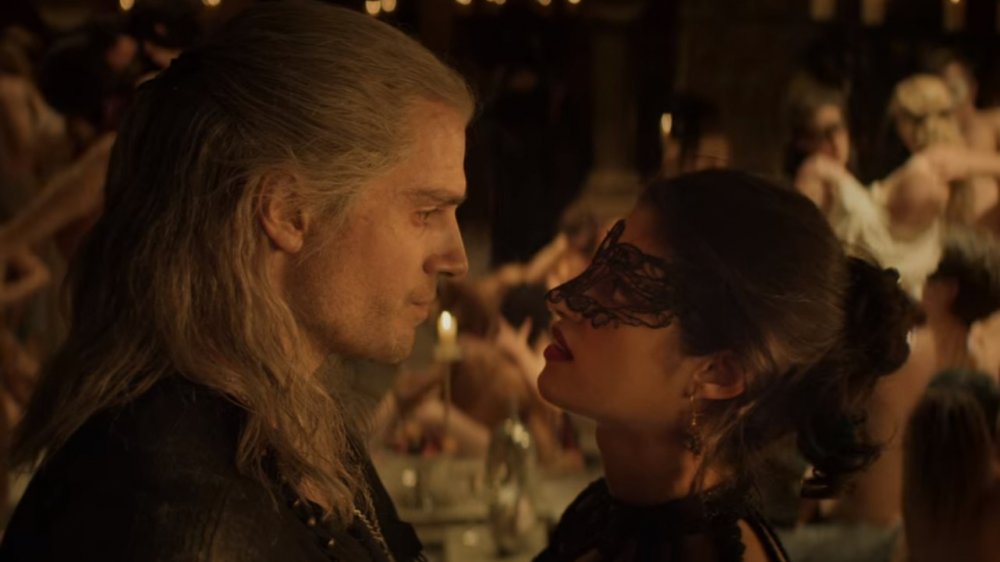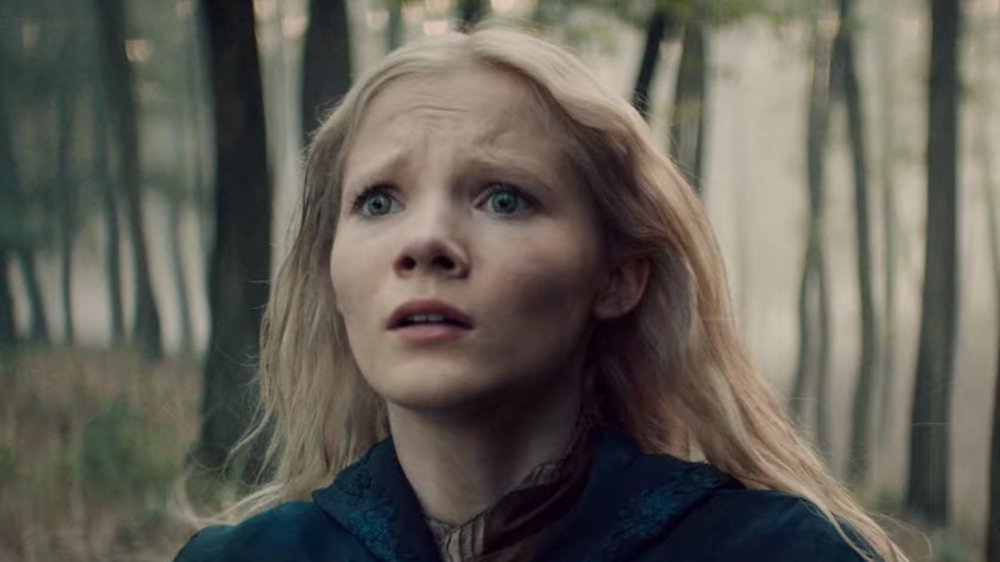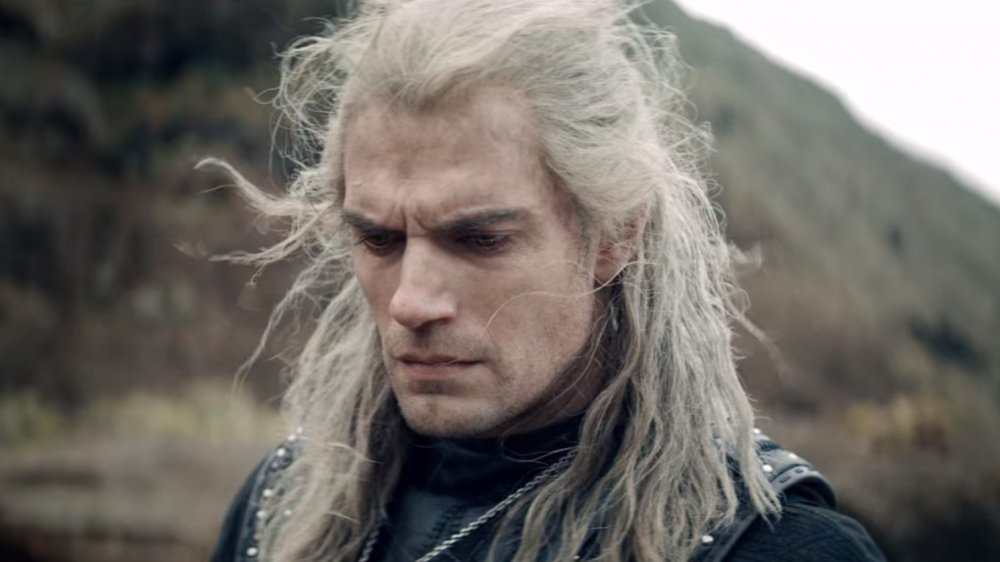Geralt Of Rivia's Entire Backstory Explained
A white wolf lurking in the forest... a fighter... a lover... a complicated man living in complicated times. Yes, Geralt of Rivia is many things to many people. How did this man come to have the powers he wields? The answer is more gruesome than being splattered with the guts of a kikimora. Geralt has not had an easy road — and from the look of things, it's going to be an even bumpier ride ahead.
Today we're breaking down Geralt of Rivia's backstory for your witching pleasure.
In a world that hates and fears him, this powerful mutant goes from town to town helping those he can and doing his best to muddle through moral quandaries. No, he isn't a student at Professor Xavier's school for gifted youngsters, he's Geralt of Rivia: a monster hunter for hire in a world where magic is often misunderstood. The Witcher leaves fans wanting more, so we're taking the time to dig deep into Geralt's backstory to find out where he's from, who raised him, what's up with all this destiny talk, and how he got those awesome yellow eyes.
Geralt of Rivia's powerful mother and unknown father
Like so many great heroes in fantasy lore, Geralt's origins are shrouded in mist and legend. We do know some things for sure, though: His mother was a powerful sorceress, healer, and member of a druid's circle named Visenna, as we learn in the short story "Something More" written by the original creator of the Witcher world, author Andrzej Sapkowski.
In the world of The Witcher, sorceresses are often well versed in laws of the land and sometimes serve as political advisers to various rulers and heads of state. But they have their own governing body and motivations. They can be secretive and sometimes even deadly. Geralt's father's identity is uncertain, but generally assumed to be the warrior Korin, whom Visenna meets in Sapkowski's short story "A Road with No Return."
Visenna clearly had her own reasons for not wanting the infant Geralt, but whatever they were, she left him in the care of the witchers to be raised at Kaer Morhen. The witchers were known throughout the land as mighty warriors, if misunderstood and despised by common folk, many of whom had a general distrust for magic users of any kind. The prejudice against witchers is way off base, because a witcher's specialty is hunting down monsters, ghouls, and all manner of magical creatures seeking to harm the general human populace.
Geralt of Rivia's brutal beginnings
So, you're a sorceress with a baby you don't want/have time for. That's great... but what to do with it? What better place to pop it down than a monster-fighting cult known for brutal training of child soldiers?
Kaer Morhen, though not originally built as a home for witchers, has been used for many years as the stronghold of the School of the Wolf. In the Order of Witchers, there are different branches of training and study with different philosophies. The fortress of Kaer Morhen is in a pretty protected area, with plenty of room to train young witchers and not easily accessible to most of the general populace — the perfect place to set up a sort of psycho Hogwarts where the main area of study is monster murder.
The School of the Wolf produces well-rounded witchers adaptable to many forms of combat and styles of fighting. But the way they train? Well, that's pretty brutal.
Geralt of Rivia's monster school for youngsters
The boys raised to be witchers may come from different parts of the realm, for different reasons, but they all end up one of two ways by the end of their witcher training: they become highly skilled, mutated monster hunters for hire... or they die. And you thought it was hard picking what to major in for undergrad? At least you had options. Little baby Geralt had no choice at all in the profession which would become his entire identity.
Training these child soldiers was a job for experienced and weathered witchers. Geralt's mentor and father figure was a wise man named Vesemir. A great warrior in his own right, Vesemir trained the youngsters at Kaer Morhen to become fierce fighters from an early age. Days of athletic training, study of arcane arts, and hours upon hours of reading up on all the different monsters of the world is the life of a witcher in training.
It was under the tutelage of Vesemir that Geralt learned how to fight the insectoid kikmora, defeat a doppler, identify a curse, free the soul of a striga, and amassed the very useful knowledge about how to deal with a djinn. But even the most prepared boy can still suffer from just one wrong move in a battle against a fearsome beast.
Death was never far from the minds of these young laddies.
Geralt of Rivia's mutation through magical means
The daily training and harsh lessons were just the beginning for the youngsters at Kaer Morhen. Though their martial arts and weapons training would be essential in their work as witchers and their knowledge of monsters would prove invaluable for saving lives and slaying magical beasts, a witcher's greatest edge comes from something even harsher and stranger: a magical mutation.
Though very rare, there are individuals in the world of The Witcher who have mutated to be very different than your run of the mill humans. Some are born under a particularly unlucky moon, some are cursed by a malicious spell caster or by a curse inherited through their bloodlines; some, like the youngsters at Kaer Morhen, are mutated intentionally.
When a young witcher is ready to undergo the procedure, he is subjected to a very rare and difficult to prepare concoction which will begin the transformation. This is known as the Trial of the Grasses. The chemical process mutates the boy's very being, giving him the extraordinary powers needed to protect the world from the deadliest monsters. Sounds great, right?
Well, maybe not that great. Of all the children subjected to the potion, only three in ten typically survive. Lucky for Geralt, he was strong enough to endure the trial.
The source of a witcher's power
After Geralt survived the trial, he was ready to begin the next chapter of his witching career. With the most potentially deadly part of his training behind him, he had the full powers of a mutated witcher — and boy oh boy, what powers they are.
The years of training had made him strong, and his new powers made him even stronger. Although he was powerful enough to cut down the biggest, baddest beasties, super-strength was actually one of the least impressive of his newly acquired set of skills. Witchers who have undergone the Trial of the Grasses also have greatly increased speed and faster reflexes for slicing and dicing even the most aggressive magical monsters.
Heightened senses help a witcher navigate their way through backwoods and over mountainous terrain, their increased hearing, sight, and smell helping them to track down a monster's nest or giving them a split-second warning before a foe on the prowl attacks. The concoction used in the Trial of the Grasses is also where Geralt got his ability to call upon arcane forces.
They also gain a greatly increased healing factor. Geralt is able to recover from a wound or the effects of poison several times more quickly than a normal human. And best of all, when one becomes a full-blown witcher, their aging process slows way, way down.
Geralt of Rivia's journey begins
Once a witcher's training is complete, it's their duty to go off into the world to slay monsters and protect the human population, but usually only if the price is right. Witchers aren't exactly into working for free (hence the total bop "Toss a Coin to Your Witcher" — more on that later.)
When it came time for Geralt to leave the deadly trappings of boyhood behind and go off into the wide world, he bid adieu to Kaer Morhen. He traveled light, his witcher gear and his trusty horse all he would need to make his way in the world. He gave his steed the odd name of Roach, a name which he would bestow on every horse he would ever own.
He was flung out into the world to track down monsters and hopefully get a good amount of coin from the people the monster was threatening, but it was a rocky road from the start. Due to their relative rarity and close association with deadly and dangerous magical beasts, rumors and misconceptions about witchers abound. It's a commonly held belief that witchers are completely devoid of feeling, although it seems that anyone who spends time with Geralt quickly learns otherwise.
But going it alone in a world that mistrusts and even fears you can lead to wild and dangerous misunderstandings.
The Butcher of Blaviken
As if the life of a witcher wasn't dangerous enough, Geralt has to contend with ignorant and bloodthirsty townspeople almost everywhere he goes. The perfect example is the adventure which earned him his gruesome moniker, The Butcher of Blaviken.
After killing a swamp-dwelling kikimora, Geralt rode to the town of Blaviken to seek his reward. He had done the townsfolk a solid by slaying a dangerous monster which surely would have threatened their lives and livelihoods, but the folks of Blaviken didn't see it that way. Geralt was greeted with disdain and anger from the moment he arrived.
A saucy lass/warrior/commander of men Renfri came to his defense, however, and the two seemed to be hitting it off. But the town's mage Stregobor had other ideas and sought Geralt's help to have Renfri, a mutant herself, killed. Geralt refused, but fate had other plans.
After a night spent in the woods, Geralt returned to Blaviken and was attacked first by the town's ruffians and then by Renfri herself. Though Geralt had been acting in self-defense, the duplicitous Stregobor used the townsfolk's prejudice to whip them into a frenzy. Geralt had no wish to slay innocent (if very stupid) people, and despite his superhuman powers, was probably no match for an entire town anyway. He was run off with no thanks and a new, bloody reputation.
A life-changing friendship
Along his winding path as a monster hunter for hire, Geralt met someone who would become his closest, and most annoying, friend: the bard Jaskier. The two met seemingly by chance, but in a world where fate is an inescapable force, their partnership and adventures together had the ring of destiny. Jaskier is a singer, songwriter, and musician who flits from town to town (and from lady to lady) earning his keep by entertaining folk both high-born and low with his dulcet tones.
Jaskier immediately took a liking to Geralt, although the feelings weren't exactly mutual at first. He saw in the white-haired witcher a wealth of material for him to elaborate and expand upon. The two friends' paths would entwine and part and come together again many times over the years, and as Jaskier wandered the world spreading songs of the witcher's exploits, Geralt's reputation would grow to become the stuff of legend.
Jaskier also wrote the aforementioned bop "Toss a Coin to Your Witcher," which surely helped Geralt get more of what a witcher needs: that sweet, sweet coin. The charming rogue Jaskier was also instrumental (pun intended) in guiding Geralt's destiny towards the two most important people in his life.
Bewitched by beauty
Geralt's backstory wouldn't be complete without including the origins of another powerful sorceress, Yennefer of Vengeburg. She was born in the humblest of homes, and mistreated from day one. She was born with physical deformities which made her an outcast, even from her own family. But she discovered within her the seeds of magical power, and her means of escape from her life of pain and sadness.
She was discovered by another sorceress and trained in the magical and often brutal arcane arts. Groomed to be a leader in affairs of state and willing to sacrifice one life for the greater good (or her own personal gain), Yennefer became a formidable wielder of magic. Her fate would become inextricably linked with Geralt's after he and Jaskier had some misadventures with a djinn trapped in a bottle. First seeking Yennefer's help to save Jaskier's life, then using his last wish to save hers, Geralt and Yennefer's fates became magically connected.
The Law of Surprise
Witchers cannot have children — the Trial of the Grasses leaves them sterile. So how did Geralt come to have a child? Well, it's time to talk about a little thing the witcher world likes to call the Law of Surprise.
The Law of Surprise is a custom in the land of Cintra and other realms where a great service is rewarded in an unusual way. If the Law of Surprise is invoked, the person who has been saved or helped gives to their savior something they didn't know that they had.
During one of Jaskier and Geralt's more dangerous adventures, they helped the Princess of Cintra and her cursed lover Duny gain Queen Calanthe's approval to marry. As a thank you to Geralt, the Law of Surprise was used. In this case, Duny didn't yet know that the princess was pregnant. (Clearly, this crazy law is taken very seriously.) Just like that, Geralt became the ward of the princess who would be named Ciri.
Geralt of Rivia's true adventure begins
Throughout everything, Geralt has walked a murky moral path, trying always to be on the side of good (even if it means sacrificing a few coins). Being left as an infant in the care of an order of monster slayers, raised and trained in their brutal customs and vicious arts of war, setting off on a journey of his own as a monster hunter for hire, Geralt has had anything but an easy life.
The winds of destiny blew him together with Jaskier, whose songs would ring out throughout the realms, earning Geralt great renown and a little more welcome in an unwelcoming world where he was entwined by magic to a beautiful sorceress with an agenda entirely her own, and finally destined to become the protector of an orphaned princess with mysterious powers. The hand of fate brought Geralt and Ciri together, beginning the most exciting, most epic, and most dangerous chapters of the witcher Geralt's life.
